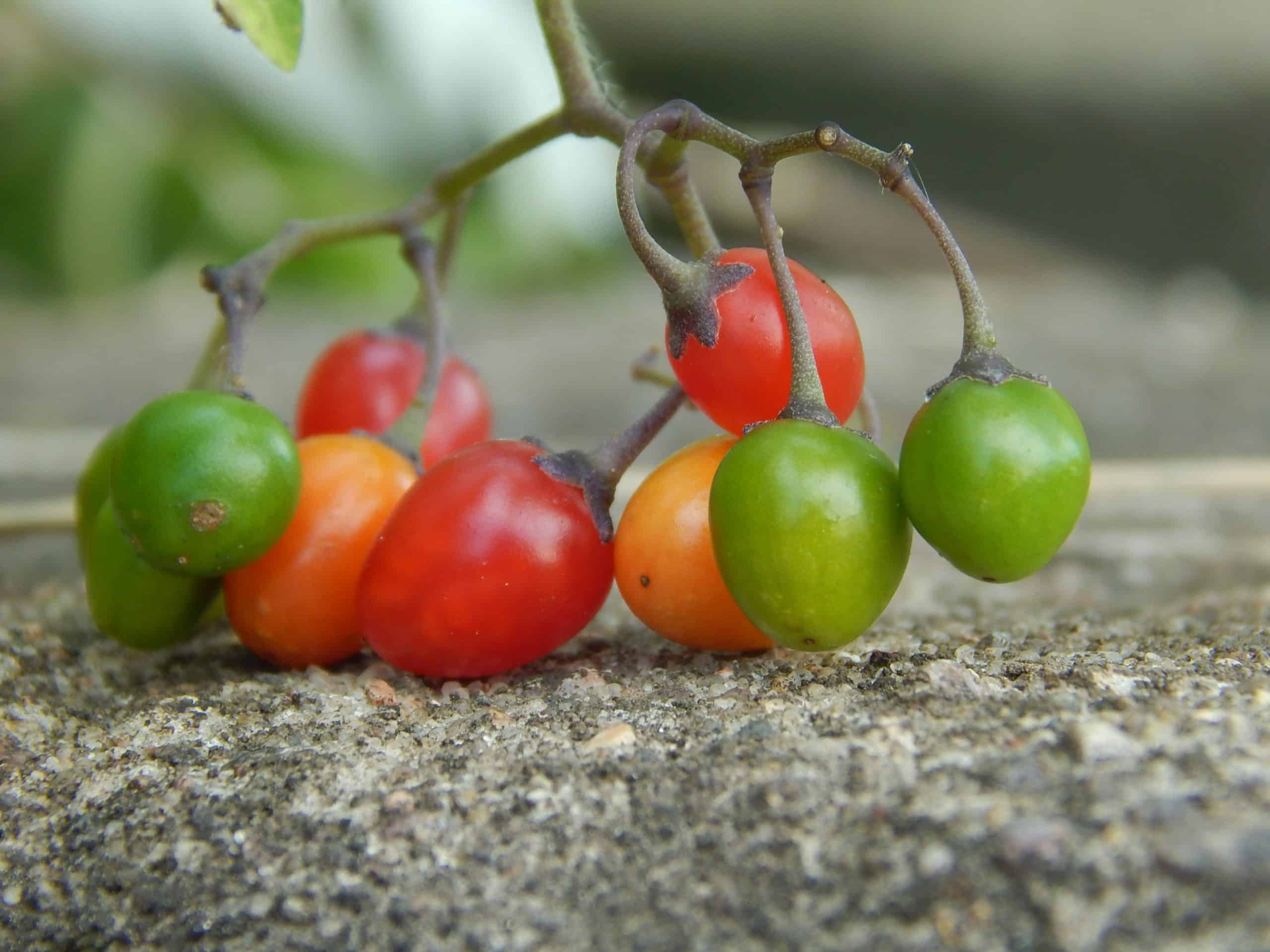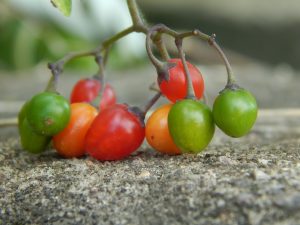
Download the free "5 MUST KNOW AB EXERCISES"
- Follow-along Workout Plan Included
- Start Burning Fat and Tone Up

 If the term nightshade makes you think of belladonna that was used as a poison for centuries. However, the nightshade family, Solanaceae, contains more than just this poisonous plant. It contains peppers, tomatoes, potatoes and eggplant, which are healthy options for most people to eat. The root of the potato is used, while the fruits of the tomato, eggplant and peppers are the bounty in those plants. Tobacco is another member of the nightshade plant, as are tomatillos, goji berries, gooseberries and garden huckleberries.
If the term nightshade makes you think of belladonna that was used as a poison for centuries. However, the nightshade family, Solanaceae, contains more than just this poisonous plant. It contains peppers, tomatoes, potatoes and eggplant, which are healthy options for most people to eat. The root of the potato is used, while the fruits of the tomato, eggplant and peppers are the bounty in those plants. Tobacco is another member of the nightshade plant, as are tomatillos, goji berries, gooseberries and garden huckleberries.
Plants often provide their own protection from insects. Either they smell bad, taste bad or actually have natural pesticides. Not only can too much solanine kill insects, but it can also hurt people, too. Too much can cause nausea, diarrhea and digestive issues. If you’ve ever been warned not to eat green parts on potatoes, it’s because they contain more solanine. Sprouting potatoes also may have more. Otherwise, it’s hard to ingest too much solanine, especially when you consider it takes approximately 120 milligrams to make you feel sick and a whole eggplant only contains 11 milligrams.
You may have heard of lectins in legumes and grains, but did you also know they’re in nightshades? Again, these are part of the plant’s natural defenses. In the human body, they can bind with gut cells and cause damage, while preventing absorption of nutrients. Sensitivity to lectins vary, but they can cause inflammation, toxic and resistant to digestive enzymes. Eating too much food high in lectins, like red kidney beans or whole tomatoes, can cause leaky gut, diarrhea, irritable bowel and gastrointestinal issues.
Plants in the nightshade family provide antioxidants that protect cells from free radicals. Eggplant, for instance, derives its purple color from anthocyanin, a potent antioxidant that protects the body from diabetes, infection and cancer. Tomatoes have lycopene, which can reduce the risk of prostate cancer and heart disease. Members of the nightshade family are also loaded with vitamins and minerals, including vitamin A and C.
For more information, contact us today at Prime Fitness Studio